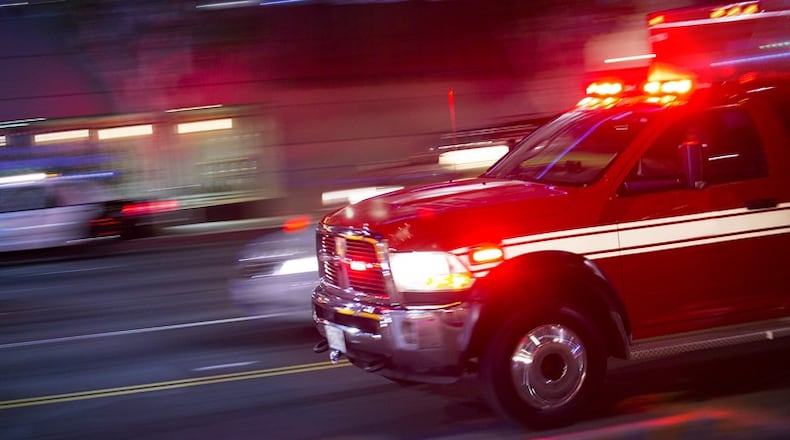A 4-year-old boy drowned in a Roswell apartment pool over the weekend in what police are calling “a heartbreaking accident.”
Roswell officers were called to the Park 83 apartments at 100 Calibre Creek Parkway just before 8:30 p.m. Saturday and found the unresponsive child, according to a news release. He had been pulled out of the water by family members.
First responders quickly began life-saving measures, and the boy was taken to a hospital, but he did not survive, the release states.
Investigators believe the child was attending a social gathering with several other families at the community clubhouse next to the pool area, according to the release. When the child had not been seen for some time, the family went to look for him and found him inside the pool.
“This incident remains under investigation, but at this time it appears to be a heartbreaking accident,” Roswell police spokesman Officer Tim Lupo said in the release. “The Roswell Police Department wants to remind our community that drownings can occur in mere seconds, and (we) stress the importance of following best practices in drowning prevention.”
Here are 11 tips for keeping children safe around water from public safety experts:
• Designate a “water watcher.” This person should not be reading or texting. They should never take their eyes off the children. Adults should take turns and have a designated person watching at all times.
• Even if a child can swim, vigilance is needed. A child can slip and fall, get tired or play a dangerous water game such as “hold your breath.”
• Learn to swim and teach your children to swim. Swimming lessons can protect against drowning. Go to usaswimmingfoundation.org and type in your ZIP code to find free and low-cost swim lessons close to you.
• Even children who’ve had lessons must be carefully supervised. Barriers, such as pool fencing, help prevent unsupervised access.
• Learn CPR. In the time it takes for paramedics to arrive, your CPR skills can save a life.
• Talk to your children about water safety. Children should be taught to never go into the water without a parent or guardian.
• Air-filled or foam toys are not safety devices. Don’t use water wings, noodles or inner tubes instead of life jackets. These toys are not designed to keep swimmers safe.
• Drowning can happen quickly and quietly. You might expect a drowning person to splash or yell for help. Sometimes, people quietly slip beneath the water.
• Avoid the “everyone is watching, no one is watching scenario.” Family and friends gather at a backyard barbecue and pool party. Adults assume everyone is watching the kids, but no one is watching.
• Keep children away from pool drains, pipes and other openings. Drains should be covered with federally approved covers to avoid suction entrapment
— Staff writer Helena Oliviero contributed to this article.
WATER SAFETY RESOURCES
The Centers for Disease Control and Prevention: cdc.gov/HomeandRecreationalSafety/Water-Safety/
Georgia Department of Public Health: dph.georgia.gov/pools
National Drowning Prevention Alliance: ndpa.org
About the Author
The Latest
Featured

